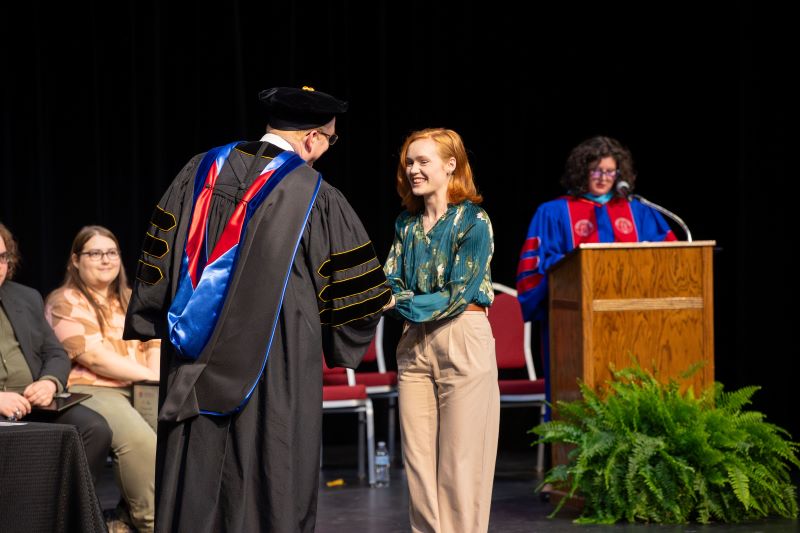Interdisciplinary Studies Major Sets Out Her Own Journey of Learning Share this page
In today’s new era of education, students are given the opportunity to create their own majors or pursue dual degrees. For University of West Georgia interdisciplinary student Rylea Swafford, she is accomplishing her studies in the former.

UWG offers an extensive list of majors, but one currently not included is linguistics, the study of which focuses on the embodiment of human language and how it’s used through the structure of words and sentences.
Linguistics is a rare major, but it actually serves as an important factor in everyday life. For Swafford, pursuing linguistics wasn’t something that was at the top of her list. She originally wanted to pursue forensic science. However, she noticed that it wasn’t very stimulating and decided to venture into the world of linguistics.
“During my sophomore year of high school, I had a teacher who made me enjoy learning Spanish,” Swafford said. “From there, I became passionate about language. I figured out what linguistics was, and I have been passionate about it since.”
At UWG, the process of selecting interdisciplinary studies as a major is determined by the student’s interests and goals. Swafford decided to create a major that combined German, Spanish and anthropology together. She also received help from faculty – professor Dr. David Newton and lecturer Claire Ezekiel – who guided her with research and independent study needs.
“I had an idea of what I wanted to do once I figured out this was an option,” Swafford said. “All I needed was to switch majors, pick my disciplines as an interdisciplinary studies major and get the classes approved.”
Last academic year, Swafford had the opportunity to present research at Scholars’ Day – a day dedicated to celebrating and acknowledging the academic work of UWG students. For her research, Swafford focused on historical linguistics and the comparative method reliability in reconstructing protolanguages, in which she gained interest from taking Intro to Linguistics. She started the project as a research paper for her linguistics course, and it took the entire semester to finalize the findings and ensure accuracy.
Following her presentation on Scholars’ Day, Swafford went on to present her research at five conferences, which required her to pay more attention to detail.
“Over the course of the three semesters spent revising it, I could not have done that without the help and guidance of Claire Ezekiel,” she stated. “She immensely guided me on improving my research.”
Swafford was awarded for her academic excellence by the International Languages and Cultures program. This acknowledgment was meaningful for Swafford, and it served as a reminder of how powerful a student she is.
Moving forward, Swafford plans to revisit her old love of forensics by pursuing a master’s degree in forensic linguistics and embarking on a career within the government. She is grateful for the many resources and support that she has received – ultimately motivating her to succeed.
“It is incredibly satisfying to be recognized for the hard work that I put into my research and studies,” she concluded. “From countless hours of studying and researching, being formally recognized at different levels gives you this feeling of satisfaction that someone recognizes you for your work and dedication.”
